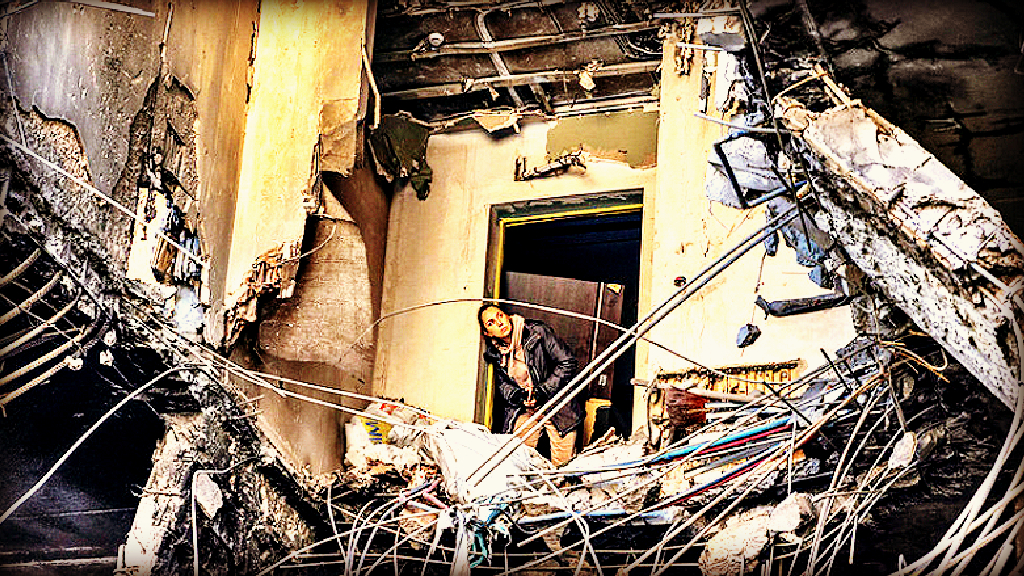As winter approaches, the plight of the Ukrainian population intensifies, with urgent concerns over the country’s energy situation amidst ongoing Russian aggression. Reports indicate that Kyiv is grappling with severe blackouts ranging from eight to twenty hours daily, primarily driven by Russian forces intensifying their military campaign across multiple fronts. This situation has left Ukraine’s energy infrastructure in dire straits, with experts revealing that the nation has lost about half of its power generation capacity due to relentless attacks. The urgency to reconstruct and safeguard this crippled energy system is paramount, as citizens face the impending reality of energy rationing that threatens to leave them without electricity for much of the day.
The cold winter season exacerbates the crisis, and with predictions of worsening weather conditions, the ramifications could be dire. Oleksandr Kharchenko, managing director at the Energy Industry Research Center, warns that if the situation continues, Ukrainians could face blackouts lasting up to twenty hours each day, particularly in the event of a cold snap and ongoing strikes on critical nuclear power facilities. The implications of such a prolonged energy crisis are severe; without adequate heating in homes and power for factories crucial to the war effort, the already burdened civilian population may find themselves in a desperate situation. A senior U.S. official noted the potential for tragic consequences, with lives at risk as many individuals might succumb to freezing temperatures in their homes.
The recent onslaught of Russian airstrikes has systematically targeted Ukraine’s energy infrastructure, resulting in the destruction of eight power plants and over 800 heat supply facilities. Experts like Gennadii Riabtsev predict that the most probable scenario for the upcoming winter involves implementing significant limitations on electricity supply to both households and industries, potentially lasting from eight to fourteen hours daily. The specter of continued Russian strikes looms large, causing concerns about the vulnerability of any newly restored energy facilities due to inadequate protective measures against air and missile assaults. The lack of sophisticated defense systems raises alarms about the feasibility of maintaining a consistent energy supply during the harsh winter months.
The uncertainty surrounding the severity of the upcoming winter adds to the nation’s anxieties. Kharchenko elaborates on the potential worst-case scenario, outlining a grim picture where low temperatures could plummet to minus ten degrees Celsius, compounded by further Kremlin-led disruptions to Ukraine’s nuclear power plants. In this scenario, blackouts could escalate to a staggering twenty hours per day, leading to heightened suffering among the populace. The country’s energy crisis is not only a logistical nightmare but also a humanitarian catastrophe waiting to unfold, with millions uncertain about their ability to endure the winter’s challenges.
Amidst these bleak forecasts, the prospect of a massive wave of Ukrainian refugees seeking safety in other countries looms large. As domestic conditions grow increasingly intolerable, many may feel compelled to venture abroad in search of refuge from the hostile environment exacerbated by energy shortages and cold weather. The looming humanitarian crisis emphasizes the urgent need for international support and intervention, which could assist in bolstering Ukraine’s energy infrastructure and provide rapid relief to those internally displaced or facing severe hardship due to the ongoing conflict.
As winter draws near, the energy crisis in Ukraine not only underscores the urgency of addressing immediate humanitarian needs but also highlights the broader implications of ongoing warfare. With essential infrastructure devastated and citizens facing the prospect of severe cold and darkness, the situation calls for a concerted response to ensure that Ukrainians can survive the harsh weather ahead. While military strategies may dominate discussions on the front lines, the human cost of the crisis, intertwined with energy dependency and geopolitical strife, must remain at the forefront of international considerations for support and resolution.

